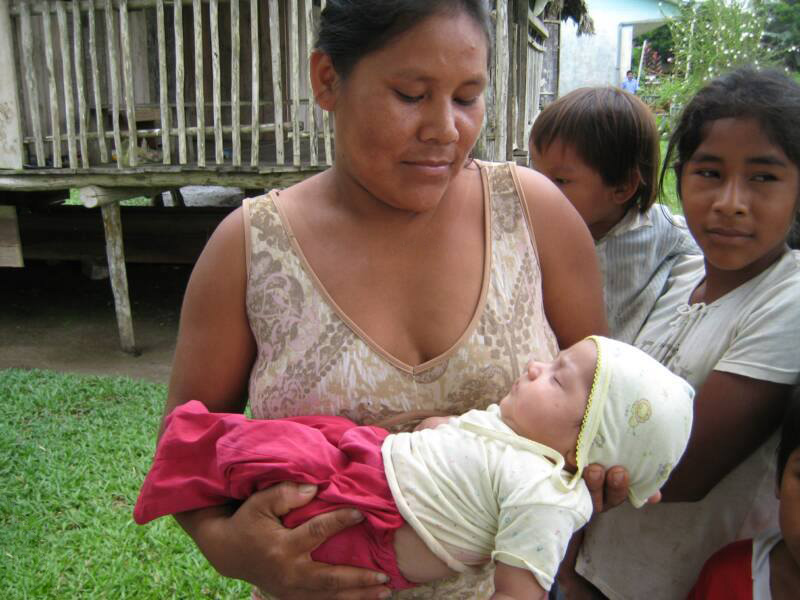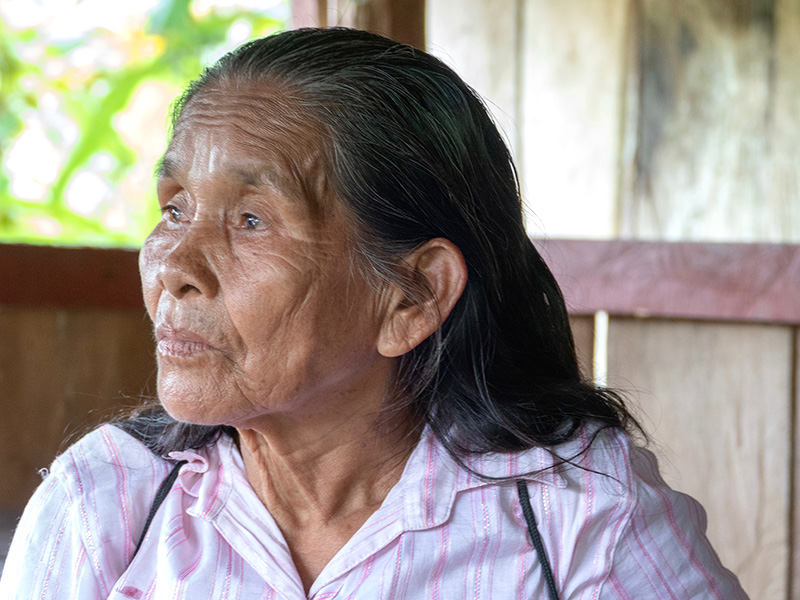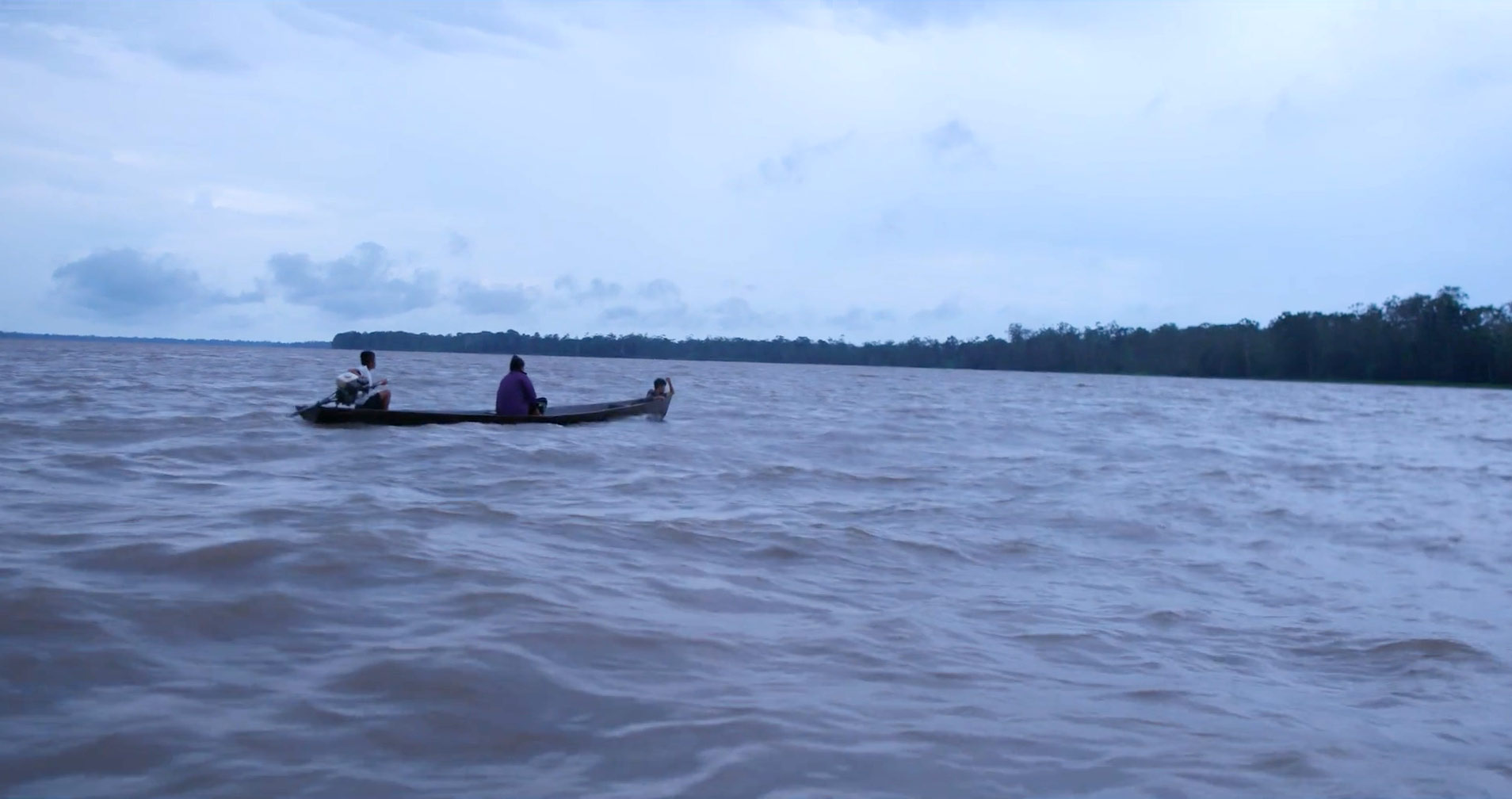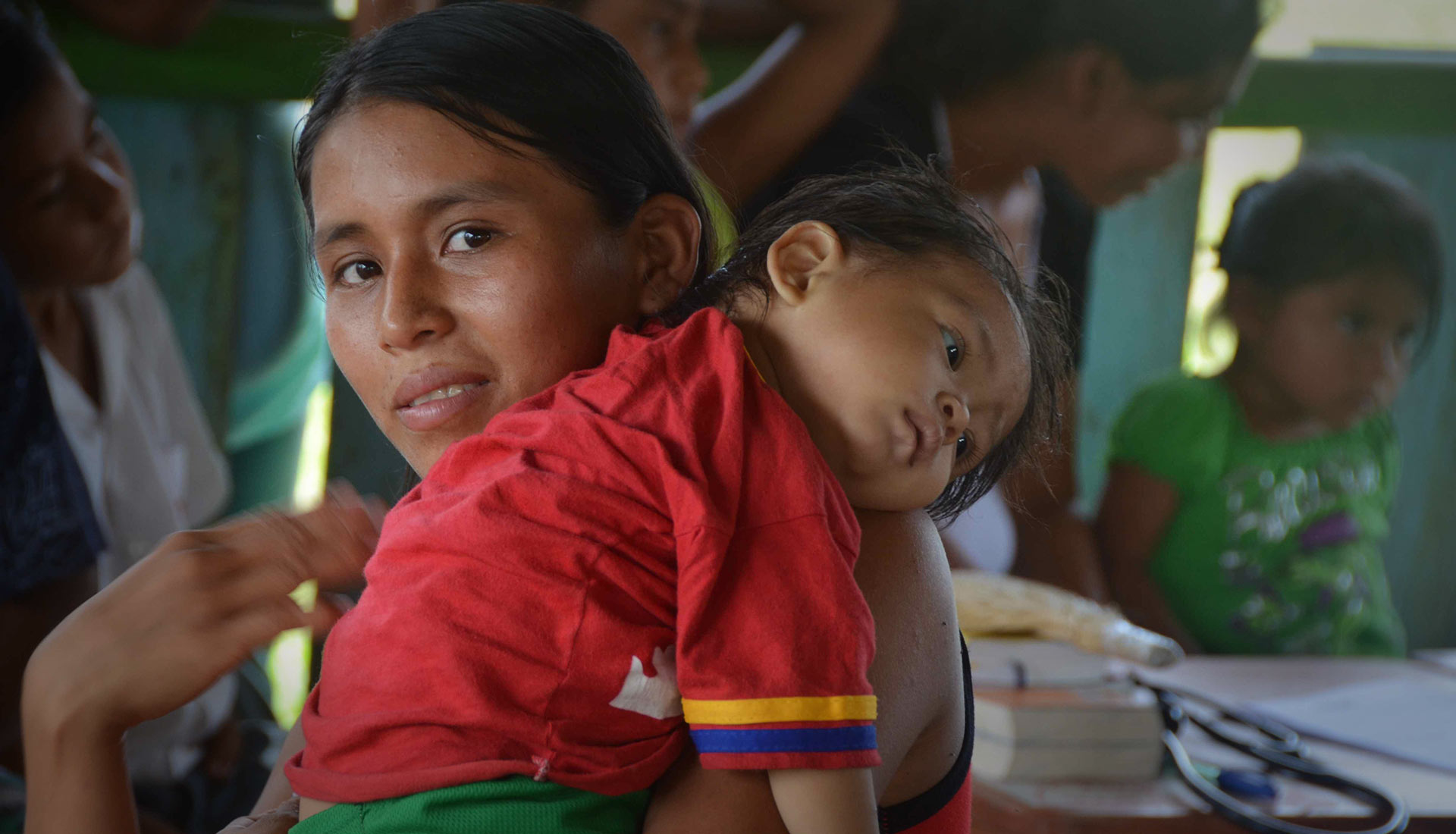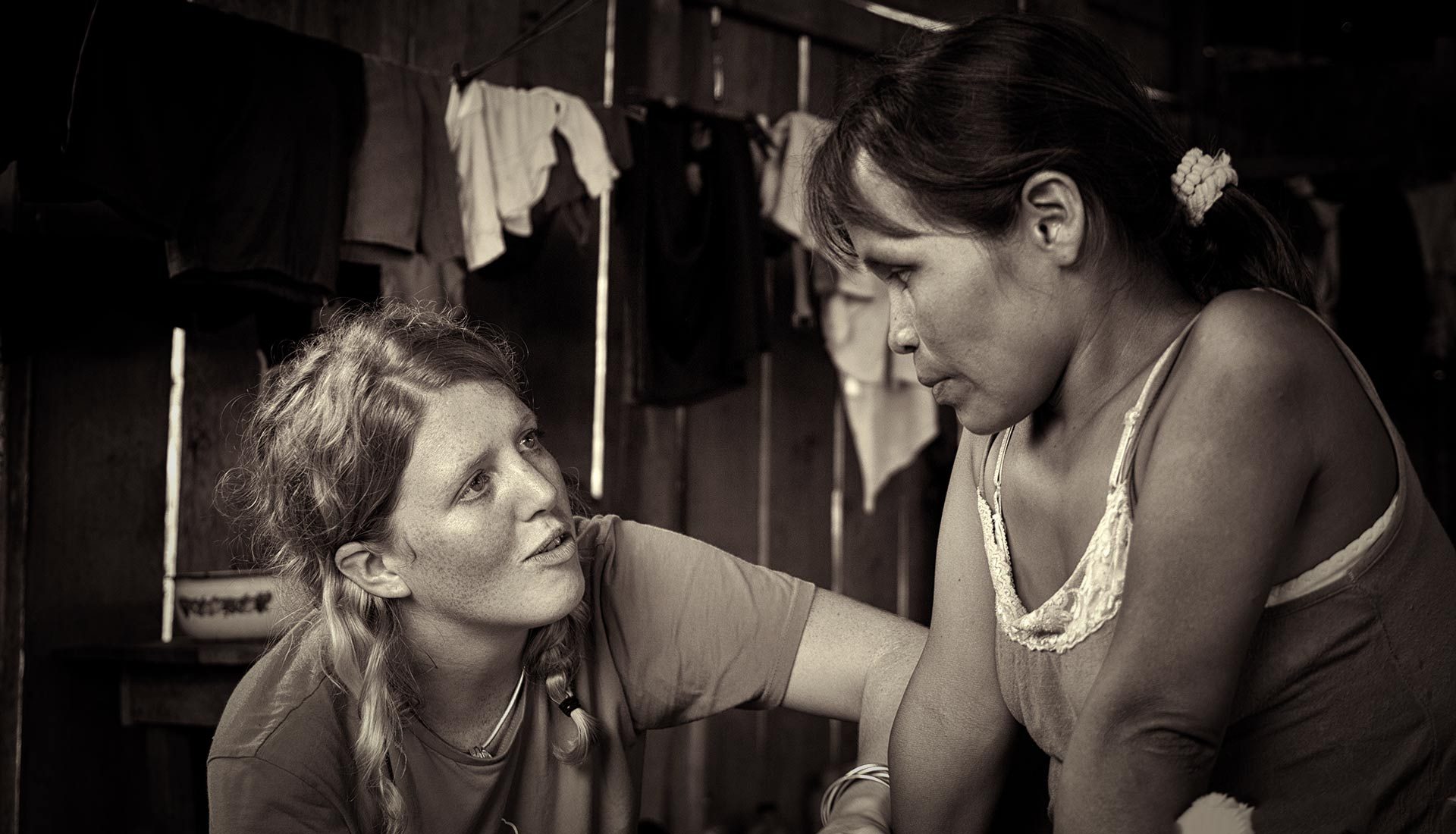DB Peru
Gender-based Violence Project
Our goal is to prevent violence to women and girls that they may live in safely in their communities.
The Gender-Based Violence Prevention in the Amazon of Peru (GAP) project began in November 2017 in meetings with 80 leaders from 18 communities in the lower Napo River. With a $150,000 grant from the World Bank, DB Peru and the University College of London have embarked on supporting local health workers with training and materials for them to work with their communities to develop solutions for prevention of this crippling problem for women and families. The research methodology being used is participative research using health workers as leaders of change.
The intensive training is giving the health workers the tools and knowledge they need to be leaders for their villages. Dr. Geordan Shannon conducted sessions in January and March 2018 for 8 specially-chosen health workers who are making a commitment to the program. They have been given teaching materials, cellular phones, boots, shirts and name tags to get started.
The DB Peru group accompanied each of the health workers to their own communities to observe the training and show support to the community and the project.
The reception from the communities has been extremely positive, indicating that the people are ready to address a very complicated and debilitating problem.
The health workers invited law enforcement and social services from the local municipality to their workshops to learn more about the law and services available when there are cases of abuse. Each of the 8 communities is addressing the issue in their own way. Dr. Shannon has captured the emergent themes from that work.
Videos by Anne Fentress
Emergent themes from July 2018 fieldwork:
During the field work in December 2018, the group spent time planning 2019 activities, setting short and long-term goals with a budget. Overall there was a very strong sense of commitment and growth from the year’s work, and a desire to advance the project forward. In April 2019 the group completed writing a training manual for other health workers and will continue working in their communities throughout the year. The World Bank has continued the grant to October 2019. Our published work is in Global Health Action “Somos Iquales?”
As we emerged from the COVID pandemic, the work has continued by the dedicated health workers. They each have chosen one or more villages to work with in order to carry forward the prevention of gender-based violence. In our 2022 survey with the communities, domestic violence was a recurring theme, and many villages are asking for help in learning how to tackle this difficult social problem.
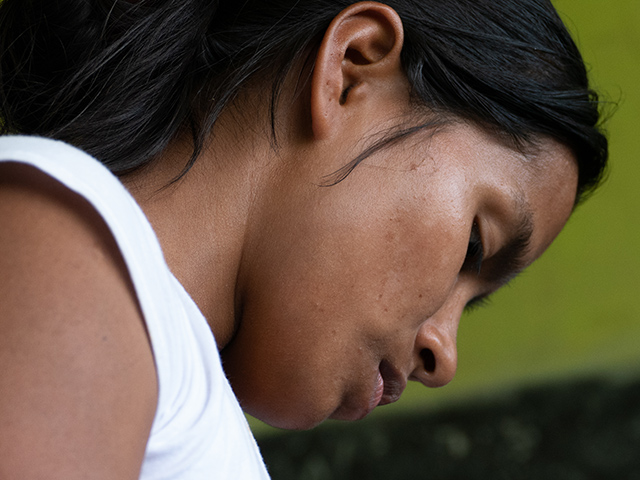
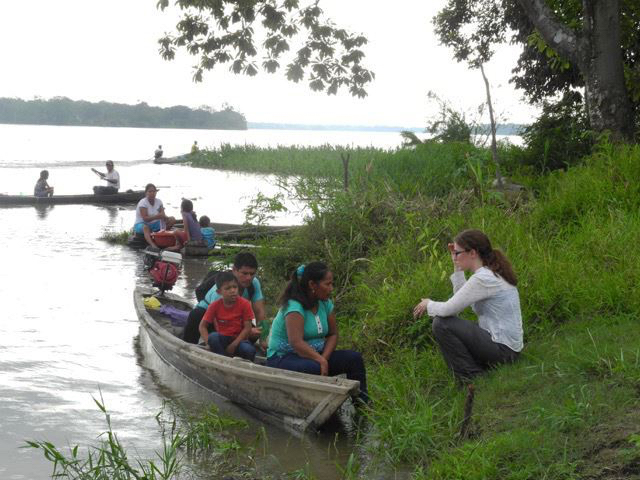
Cervical Cancer and HPV
Our goal is to reduce the morbidity and mortality of women due to cervical cancer, and to educate all women about their bodies and conditions specific to women’s health.
Peru has some of the highest incidence and mortality rates of cervical cancer in the world. Remote Amazonian women are dying from cervical cancer too young, without adequate screening or diagnosis, placing enormous burdens on their families, communities and the healthcare system.
In response to the concerns about cervical cancer, we began our Women’s Project in 2011 providing education about women’s health and screening for cervical and breast cancer to any woman who wished the exam. Included was sex-education for teens, seminars on aging and family planning. Educational sessions were open to men and women alike. Pap smears were collected and processed by the government laboratory in Iquitos.
Between 2015-2017, with a grant of $42,000 from Together Women Rise (previously Dining for Women), the project evolved into a formal program called “The Amazon Community Based Participation Cervical Cancer Screen-and-Treat (ABCS) Program.” This grant provided resources to deliver an innovative cervical cancer screen-and-treat program. The project involved education and investment in the training of local service providers as well as collaboration with local health services. Clinical work consisted of HPV testing, and treatment with cryotherapy in the villages. Together with local government clinics, we brought HPV vaccinations to the young girls.
President Diana Bowie was guest speaker at the National Conference of Dining for Women, Knowledge is Power, in Washington DC May 4-5, 2018. The topic was “The Delivery of Services at the Last Mile; Challenges and Opportunities.”
Our article was published in Women’s Health “A Descriptive Analysis of Health Practices, Barriers to Healthcare and the Unmet Need for Cervical Cancer Screening in the Lower Napo River Region of the Peruvian Amazon.”
The project itself had 3 major elements:
01Formal research with data collection about demographics, general health and women’s health
02Education with materials specifically developed for the women of the Amazon region
03Screening for the human papilloma virus (HPV) and clinical intervention with cryotherapy in the villages, as well as HPV vaccinations for young girls.
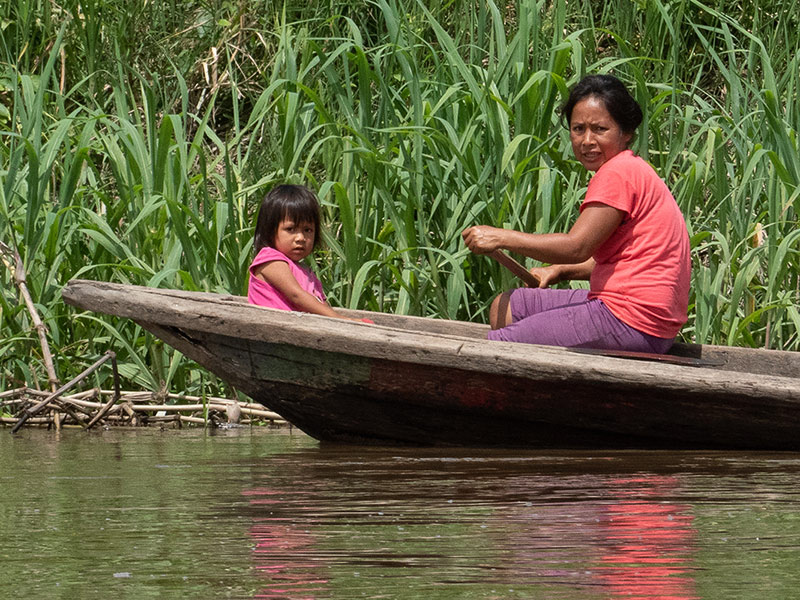
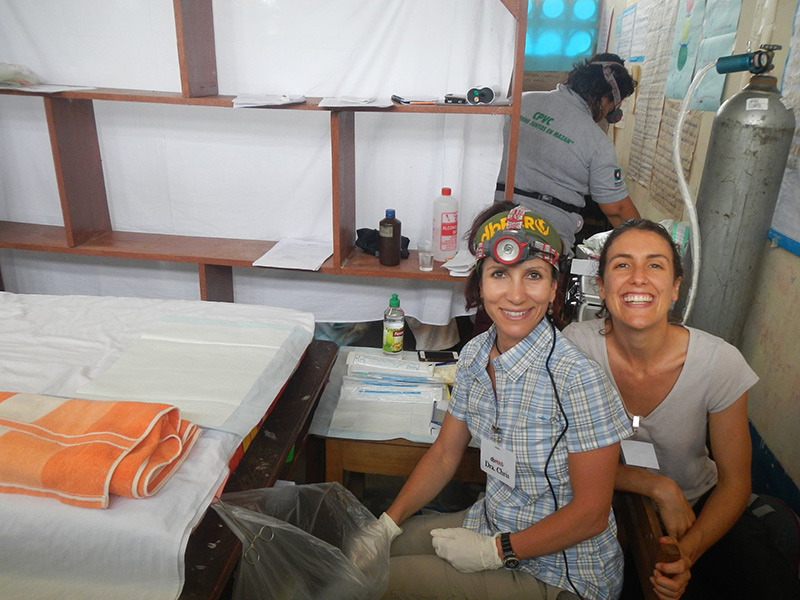
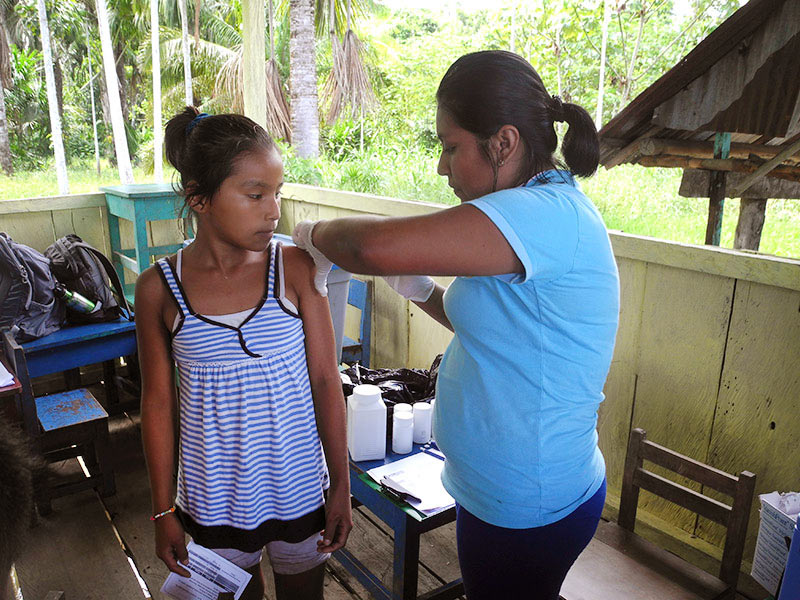
In 2022, we joined in data collection with researcher Valerie Paz Soldan PhD in Lima, Peru and Tulane University to collect HPV specimens on women age 30-49 in the rural jungle villages. Over a period of 5 weeks, more than 120 HPV specimens were collected, and treatment with thermo-ablation was offered to women at the local health post in Mangua by Dr. Daniel Lenin. Follow-up on women who tested positive will continue into 2023. The Minister of Health in Peru has committed to purchasing needed equipment and training of health staff in order to bring testing and treatment to more women. Both boys and girls are now eligible for HPV vaccinations.
The YouTube videos shared for the Together Women Rise grant are the following:
Midwife Classes
Our goal is to reduce maternal and infant morbidity and mortality.
DB Peru organizes 2-day classes for midwives (parteras in Spanish). Our focus is on safe deliveries as well as prenatal and post-delivery care, including care of the newborn.
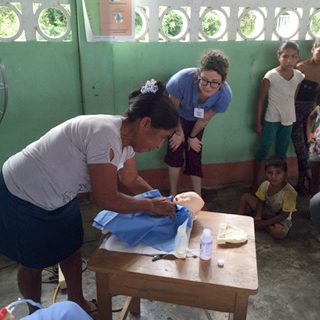
The learning curriculum is based on guidelines from the Minister of Health in Peru. Classes are taught by local doctors and nurse-midwives (obstetrices) from clinics and hospitals, and are often joined by visiting foreign doctors. At the end of each class, those who complete the program receive a certificate and a delivery kit – a basin filled gloves, scissors, umbilical clamps, suction bulb, soap, pads, measuring tape and other necessary supplies to be used during childbirth.
Each midwife is given the book The Book for Midwives, or El Libro para Parteras, published by the Hesperian Foundation.
During the classes, experienced midwives from the jungle – many with more than 25 years of experience – share their knowledge of local care. One of the advantages of the classes is the networking of the midwives from the different villages, encouraging the newer ones to call on the more experienced midwives as resources.
Classes include resuscitation of newborns with practice on a model. Advanced midwives receive medications to be used to stop post-partum hemorrhage and the use of an ambu bag to help babies breath.
The number one hazard identified by the midwives in our area is the first-time mother who does not understand about delivery and does not cooperate, which can cause problems during the birth.
A teaching module was developed by Lauren Oberle to train midwives to teach the first-time mothers about the delivery process – what to expect and how to assist when they are in labor.
